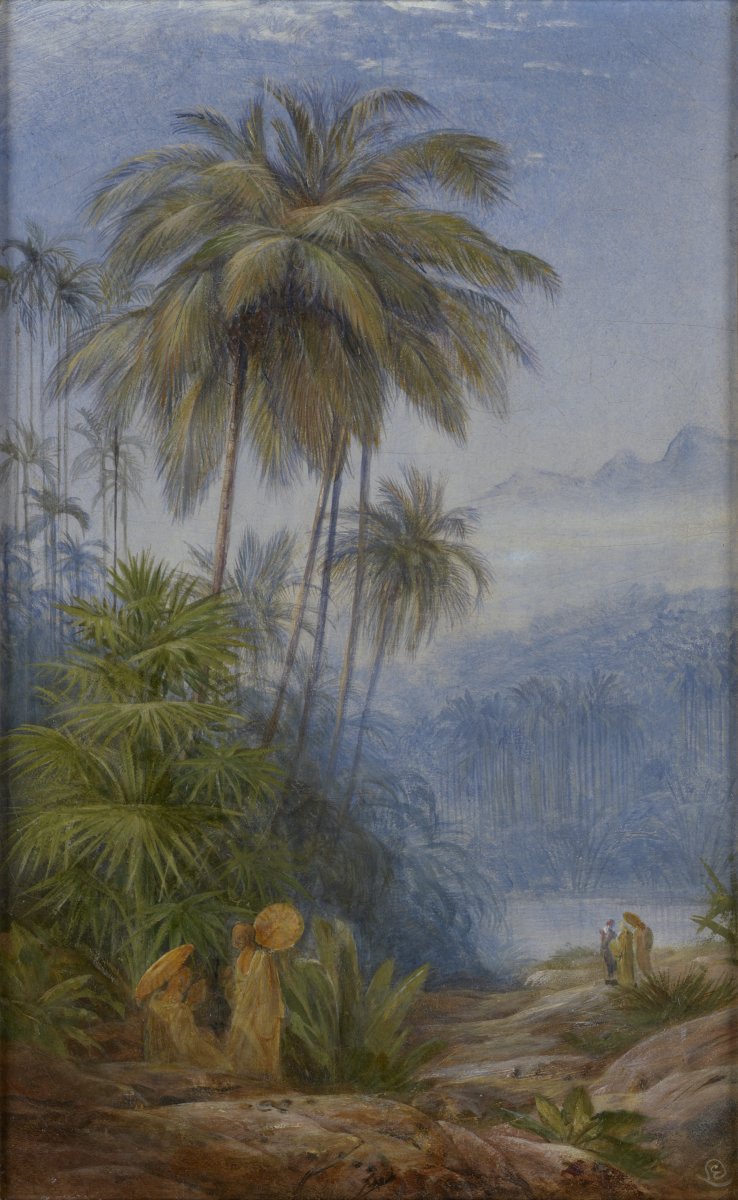Ceylon Scenery

-
About the work
- Location
-
Country: Sri Lanka
City: Colombo
Place: British High Commission
Edward Lear set off for India in November 1873 on the invitation of Lord Northbrook, then Viceroy of India. Although aged 60, his enthusiasm for long-distance travel was unabated. Lear arrived in Ceylon the following November. He spent two months there until, overcome with fatigue, he departed for home.
-
About the artist
Edward Lear, best known for nonsense verse and limericks, was also a topographical landscape painter, musician, travel writer, ornithological and natural history draughtsman and an illustrator. Largely self-taught as a painter, he began by drawing animals at Knowsley Hall menagerie; later moving to landscape painting. He lived in Italy from 1837 to 1848, returning briefly when Queen Victoria requested twelve drawing lessons. He later studied at the Royal Academy Schools (1850-51). In 1852 he was introduced to William Holman Hunt, whose paintings became a great influence. From the early 1860s, Lear’s reputation as a landscape painter declined, perhaps partly a result of the mass-produced watercolours he made, which he called ‘Tyrants’.
-
Explore
- Places
- Subjects
- Materials & Techniques
-
Details
- Artist
-
Edward Lear (1812 - 1888)
- Title
- Ceylon Scenery
- Date
- Medium
- Oil on canvas
- Acquisition
- Purchased from John Teed, September 1952
- Inscription
- br: monogram
- Provenance
- Purchased from John Teed, Bradford-on-Avon, 1952
- GAC number
- 1866